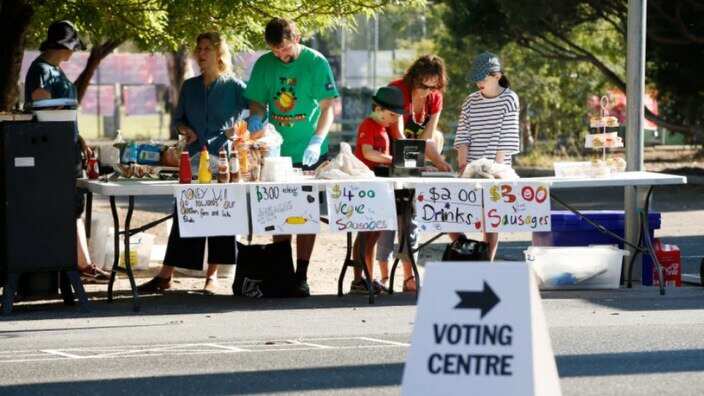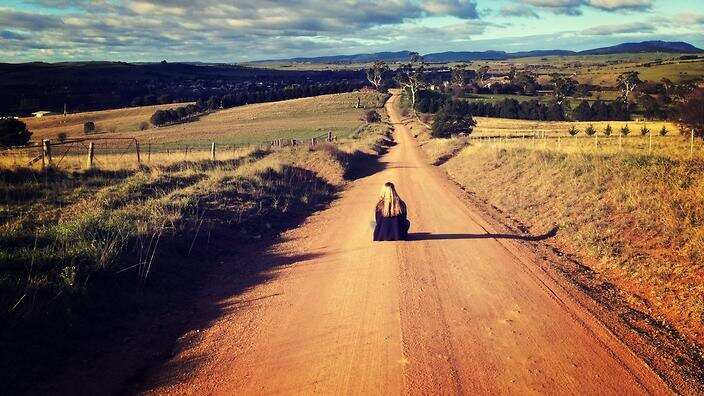A record-breaking number of Australians have cast their votes before election day, with 4 million people having voted so far.
Australians have been able to vote over a period of three weeks before the election, with the final opportunity ending today.
The Australian Electoral Commission spokesman Evan Ekyn-Smith, told SBS News that’s up from just fewer than 3 million people (2.89 million) in the 2016 election.
“It’s a record number of early votes,” he said.
On Thursday, 530,000 people went to their local pre-election centre to vote and the commission expects at least as many people will do the same on Friday.
“We could expect that that number of people casting their vote at early voting centres will go over the 4.5 million mark,” Mr Ekyn-Smith said.

Pre-polling is growing in popularity and Mr Ekyn-Smith said it’s unclear what started the significant upward trend.
“There’s eligibility criteria for people casting an early vote, it’s essentially for people who cannot make it on polling day, for legitimate reasons, like work or travelling, but ultimately we do not ask people to specify what their reason is.”
Close to 1.5 million people also applied for a postal vote this election, which is a slight increase to the last election.
Pre-polling varied among electorates, he said, with Victoria and ACT leading the trend.

Dr Jilll Sheppard, a lecturer in politics at the ANU, told SBS News there’s a lot of concern on pre-poll voting because of Australia’s long history of voting on election-day as a social event.
“We get worried about the idea that voters are flocking to the polling booths as early as they can to cast an angry vote against either the government or the opposition, but that’s not necessarily the case.”
Dr Sheppard said one explanation for the rise in pre-election day voting is the changing demographic and aging population, while another is political fatigue.
“The number of people who just want to be over and done with, who want to be able to vote and then switch off from the election, as well as the number of people who feel like they are too old and it’s not comfortable to vote on Election Day, both of these groups are growing and we will see, unless policy changes more and more of that voting in Australia.”
Dr Sheppard said trust in politics and politicians are also a factor.
“We know that a record number of Australians don’t trust our parties, they don’t trust our political system, they are not satisfied with the way politics is working in Australia. If they do want to vote early, that’s totally understandable, as soon as they cast their votes, they don’t have to watch the news, they don’t have to follow the campaign anymore, and get on with their lives, “she told SBS News.
Impact on Democracy?
Pre-polling changed the way parties’ campaign, with many politicians moving their big announcements to an earlier date to reach people before they cast their ballot.
It also changed the ebb and flow of elections and the way people communicate.
“We are seeing a bit more focus on the areas that have large pre-polling booths, because it gives a chance for candidates and representatives to speak to voters while they are waiting up to vote," said Dr Sheppard.
"So it is going to change the logistics of how the parties campaign.”
Some worry that rural areas could be negatively affected because candidates will spend less of their time campaigning there.

Most pre-poll votes are counted when booths close late on Saturday, but some votes, such as postal - or declaration votes, are not counted until after the election.
Dr Sheppard said the large number of pre-poll votes could stretch the resources of the commission, and lead to delays in vote counting on Saturday.
“I think in this election we’ll see the electoral commission do what they can to enable an announcement on election night, but given the enormous numbers and number of workers the electoral commission has, they may not be able to do that.”
But Mr Ekyn-Smith was not worried.
He said the commission will do its best, but conceded that “a lot depends on how tight the result is”.
The Electoral Commission said the popularity of the system will lead to a review of pre-polling after the election.

